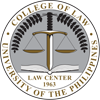APJIHL Team
Board of Experts
-
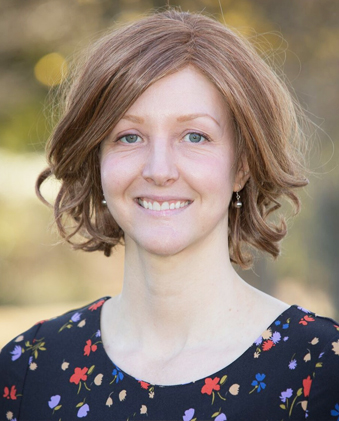 Dr. Monique Cormier
Senior Lecturer, Monash University Faculty of Law
Dr. Monique Cormier
Senior Lecturer, Monash University Faculty of Law
Dr. Monique Cormier
Senior Lecturer, Monash University Faculty of LawDr Monique Cormier is a Senior Lecturer at Monash University Faculty of Law in Melbourne, Australia where she teaches Criminal Law and International Law. Her primary research interests include jurisdiction and immunities in international law and legal issues relating to extended nuclear deterrence. Recent publications include The Jurisdiction of the International Criminal Court over Nationals of Non-States Parties (Cambridge University Press, 2020) and ‘Can Australia Join the Nuclear Ban Treaty without Undermining ANZUS?’ (Melbourne University Law Review, 2020, co-authored with Anna Hood).
Monique has a PhD from the University of Melbourne, a Master of Laws from Columbia University, and undergraduate degrees from the University of Adelaide. She is currently Treasurer of the Australian and New Zealand Society of International Law. -
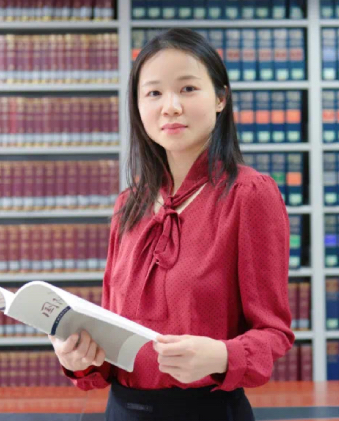 Dr. He Tiantian
Associate Professor, Institute of International Law Chinese Academy of Social Science
Dr. He Tiantian
Associate Professor, Institute of International Law Chinese Academy of Social Science
Dr. He Tiantian
Associate Professor, Institute of International Law Chinese Academy of Social Science Dr. HE Tiantian completed her Ph.D. in International Law from Renmin University of China in 2015. Presently, she serves as an associate research fellow at the Institute of International Law, Chinese Academy of Social Sciences. Additionally, she is an associate professor at the University of Chinese Academy of Social Sciences and works as an editor for Chinese Review of International Law. She is now a council Member of Chinese Society of International Law and a member of Asian Society of International Law. Dr. HE Tiantian’s research focuses on international humanitarian law, international criminal law and international dispute settlement. She published a book titled “The War Crime of Child Recruitment: Analysis of the First Judgment of the International Criminal Court” in 2018. Her publications have appeared in journals both in English and Chinese, such as Chinese Journal of International Law, Law Sciences, and Chinese Review of International Law, among others. -
 Dr. Borhan Uddin Khan
Professor, University of Dhaka
Dr. Borhan Uddin Khan
Professor, University of Dhaka

Dr. Borhan Uddin Khan
Professor, University of DhakaProfessor Borhan Uddin Khan is currently a Professor in the Department of Law, University of Dhaka and Advisor, Adjunct Professor and head of the Department of Law, Independent University, Bangladesh (IUB). He is a former Dean of the Faculty of Law, (2006-2010) and the former Chairman of the Department of Law (2015-2017), University of Dhaka.
Borhan is one of the founder members of the Asian Society of International Law. He is currently a member of its Board of Advisors and a former Vice President (2013-2015). He is also a member of the Editorial Board of the Asian Journal of International Law. His areas interest include: International Human Rights Law, International Humanitarian Law, Legislative Drafting and Codification of Laws. As consultant of the Ministry of Law Justice and Parliamentary Affairs, he codified the laws of Bangladesh Code (1939-2005), published in 2007 as The Bangladesh Code (Vols. IX-XXXVI). His co-edited book Revisiting the Geneva Conventions: 1949-2019 (Brill Nijhoff, with Jahid Bhuiyan) is forthcoming in 2019.
He recently received “The LSE Outstanding Alumni Volunteer Award’ (2016-2017) from the London School Economics and Political Science.
-
 Dr. Ai Kihara-Hunt
Professor, the University of Tokyo
Dr. Ai Kihara-Hunt
Professor, the University of Tokyo
Dr. Ai Kihara-Hunt
Professor, the University of TokyoDr. Ai Kihara-Hunt is Professor at the Graduate Program on Human Security, the University of Tokyo. At the University, she is also Director of the International Law Training and Research Hub, and Director of the Research Center for Sustainable Peace. Her main areas of research and publications are human rights, International Humanitarian Law (IHL), United Nations (UN) Peace Operations, in particular UN Police, the rule of law, and accountability. She coaches student teams on IHL and human rights. Her publications include: Holding UNPOL to Account: Individual Criminal Accountability of United Nations Police Personnel (Brill, 2017).
She served as a member of the UN Police Doctrinal Development Group, which drafted the doctrinal framework for the UN Police in 2016-2017. Prior to that, she worked as Human Rights Officer for the UN Office of the High Commissioner for Human Rights (OHCHR) in Nepal and at the headquarters, Assistant to the Executive Director of the Independent Special Commission of Inquiry for Timor-Leste, Associate Protection Officer at the UN High Commissioner for Refugees (UNHCR) in Sri Lanka, Public Information and Community Outreach Officer at the Commission for Reception, Truth and Reconciliation in East Timor, and Human Rights Officer in the UN Transitional Administration in East Timor (UNTAET).
-
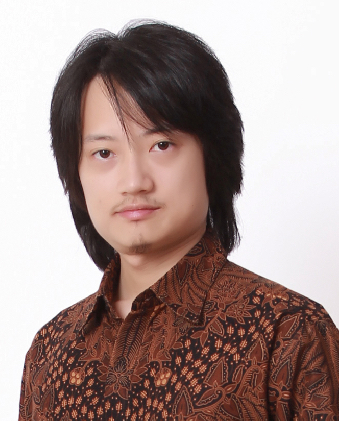 Dr. Jonathan Kwik
Researcher in international law at the T.M.C. Asser Institute, The Hague
Dr. Jonathan Kwik
Researcher in international law at the T.M.C. Asser Institute, The Hague

Dr. Jonathan Kwik
Researcher in international law at the T.M.C. Asser Institute, The HagueJonathan Kwik is a researcher at the T.M.C. Asser Instituut in The Hague attached to the ELSA Lab Defence project. His specialisation is in the laws governing the conduct of hostilities and artificial intelligence (AI). He obtained his doctorate (cum laude) from the University of Amsterdam on the lawful use of AI-embedded weapons at the operational level, under Profs. Tom van Engers, Terry Gill and Harmen van der Wilt. He holds a Master of Laws degree (cum laude) from the University of Groningen in international criminal law and criminology, and a Bachelor of Laws degree from the University of Groningen in international law.Jonathan Kwik taught international humanitarian law and public international law at the Soegijapranata Catholic University in Semarang, Indonesia. He is an academic partner of the ICRC, and has worked together with the ICRC on many occasions in matters of research, policy discussions, and dissemination events. He has published extensively in the fields of international humanitarian law, targeting law, AI modelling, (international) criminal responsibility and post-conflict reconciliation. -
 Dr. Marnie Lloydd
Lecturer, Te Herenga Waka–Victoria University of Wellington
Dr. Marnie Lloydd
Lecturer, Te Herenga Waka–Victoria University of Wellington

Dr. Marnie Lloydd
Lecturer, Te Herenga Waka–Victoria University of Wellingtonmarnie.lloydd@vuw.ac.nz https://people.wgtn.ac.nz/marnie.lloydd/about https://twitter.com/MarnieLloydd https://scholar.google.com.au/citations?user=PTNuufkAAAAJ&hl=enBA LLB (Hons) (VUW), MA (Bochum), LLM (Geneva), PhD (Melbourne)
Dr Marnie Lloydd is a Lecturer at the Faculty of Law, Te Herenga Waka–Victoria University of Wellington. She is an international lawyer whose principal field of expertise is international law related to armed conflict and the protection of civilians. Marnie teaches and researches in the areas of humanitarian law and policy, forced migration, foreign fighting and counterterrorism, and legal ethics. Her academic work builds on fifteen years in the international humanitarian sector, primarily working as a Delegate and Legal Advisor with the International Committee of the Red Cross (ICRC) in countries suffering armed conflict. She has also provided expert legal consultation to the UNHCR and managed international legal research projects for the European Centre for Minority Issues in Germany. Marnie is admitted as a Barrister and Solicitor of the High Court of New Zealand. She is a member of New Zealand’s National IHL Committee, Associate-Director of the New Zealand Centre for Public Law, and sits on the Editorial Committee of the New Zealand Journal of Public and International Law. -
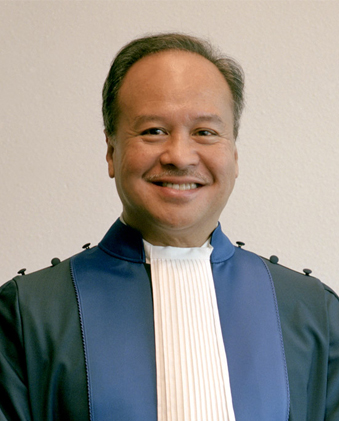 Judge Raul C. Pangalangan
Professor of Law, University of the Philippines
Judge Raul C. Pangalangan
Professor of Law, University of the Philippines

Judge Raul C. Pangalangan
Professor of Law, University of the Philippines+639189080689 rpangalangan@gmail.com https://law.upd.edu.ph/profile/faculty-pangalanganraul/ https://www.icc-cpi.int/CourtStructure/Pages/judge.aspx?name=Judge%20Raul%20Cano%20PangalanganServed as Judge, International Criminal Court at The Hague (2015-21). Presiding Judge in the first ICC trial on the war crime of attacking religious and historical heritage. Sat in cases involving child soldiers and forced marriages. Member, Permanent Court of Arbitration (The Hague). Judge, Asian Development Bank Administrative Tribunal (Manila). Elected to the Institut de Droit International (2021). LLM (1986), SJD (1990), Harvard. Diploma, The Hague Academy of International Law (1987). Professor of Law (since 1984) and Law Dean (1999-2005), University of the Philippines. Asian Public Intellectual Fellowship, Nippon Foundation (2012). Visiting appointments at Harvard and the universities of Melbourne, Hong Kong, Puerto Rico. Lectured at the Hague Academy of International Law, International Committee of the Red Cross, and U.N. Audio-Visual Audiovisual Library of International Law.
Author: (forthcoming, BRILL Nijhoff, 2021) (https://brill.com/view/title/60849). -
 Dr. Jan Römer
Legal Adviser, International Committee of the Red Cross
Dr. Jan Römer
Legal Adviser, International Committee of the Red Cross
Dr. Jan Römer
Legal Adviser, International Committee of the Red CrossJan has had various assignments as ICRC legal adviser since 2010, namely in Ethiopia, East Asia, Ukraine and at the Headquarters in Geneva and as an ICRC delegate (2001-2010) in countries like Iraq, Georgia, Colombia, Zambia, Russia and Afghanistan.
Before joining the ICRC, Jan was trained and worked as a lawyer in his native Germany (1997-2001). He studied law at Ruprecht Karls Universität (Heidelberg) and Université de Genève (1991-1997) and received his doctoral law degree from Europa Universität Viadriana (Frankfurt Oder) in 2009. From 2018 to 2020, he was one of the two Managing Editors of the Asia-Pacific Journal of IHL. He published, among others, the book ‘Killing in a Gray Area between Humanitarian Law and Human Rights’ in 2010 (Springer, Heidelberg).
-
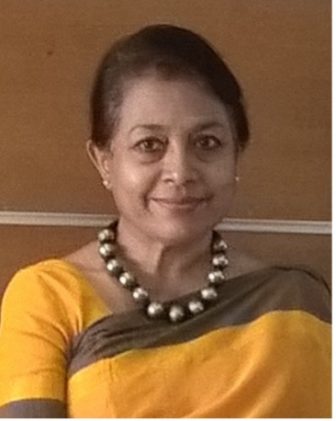 Prof. Deepika Udagama
Head of Department of Law, University of Peradeniya
Prof. Deepika Udagama
Head of Department of Law, University of Peradeniya
Prof. Deepika Udagama
Head of Department of Law, University of Peradeniya Prof. Nelum Deepika Udagama is currently the Chair Professor of Law at the University of Peradeniya, Sri Lanka. She is an academic specialized in International Human Rights. She received her legal education at the Faculty of Law, University of Colombo (LL.B. (Hons.) and LL.M. Degrees) and School of Law, University of California at Berkeley, USA (LL.M. and Doctor of Juridical Science (JSD) Degrees) in international human rights law. In 1991 she founded the Centre for the Study of Human Rights (CSHR) at the University of Colombo and served as its Founding Director (1991-97). She engaged in pioneering work on human rights education within the public university system and for the larger community through the CSHR. She also played a key role in the establishment of the Department of Law at the University of Peradeniya (2009) and in the formulation of a unique inter-disciplinary curriculum for its LL.B. Degree Program with a focus on social justice. Until recently she served as the Chairperson of the Human Rights Commission of Sri Lanka (October, 2015 – August, 2020). Under her stewardship the Human Rights Commission of Sri Lanka was promoted to ‘A’ status accreditation by the Global Alliance of National Human Rights Institutions (GANHRI) in 2018. Previously, she had served as a member of the Human Rights Commission (2003-2006) and the Law Commission of Sri Lanka (2004-2009). Being of the firm belief that scholarship and advocacy in the public interest are closely intertwined, her human rights advocacy work has seen her actively involved in local and regional civil society organizations as well as appointment to UN human rights bodies. She was appointed as member (2008-2013) and Chair (2012) of the Board of Trustees of the UN Voluntary Fund for Technical Cooperation in the field of human rights (VFTC) and was also elected as Alternate Member of Sri Lanka to the UN Sub-Commission on the Protection of Human Rights (1998-2001). She was elected by the UN Sub-Commission as Co-Special Rapporteur (with Prof. Joe Oloka-Onyango of Uganda) on the theme ‘Globalization and its Impact on the Full Enjoyment of Human Rights’, resulting in an often-cited pioneering study on the theme (1999-2001). She is the recipient of several academic awards including a Senior Fulbright Scholar Award with a placement at the Harvard Human Rights Center (1997-98). She has taught at the UN University in Tokyo, Faculty of Law, Hong Kong University and the National Law University Delhi. She has also served on editorial boards of international and national academic law journals including the Netherlands Quarterly on Human Rights. The main focus of her research is the intersection between international and constitutional protection of human rights. -
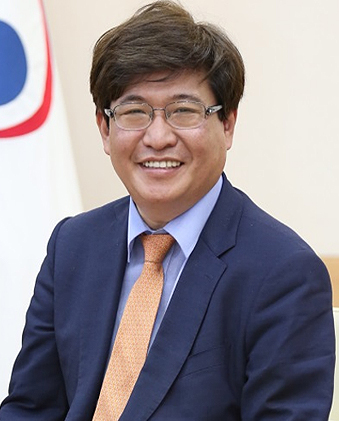 Prof. Yoo Joonkoo
Professor of Center for International Law, Korea National Diplomat Academy
Prof. Yoo Joonkoo
Professor of Center for International Law, Korea National Diplomat Academy
Prof. Yoo Joonkoo
Professor of Center for International Law, Korea National Diplomat Academy Joonkoo Yoo is a Professor of the Korea National Diplomat Academy, Ministry of Foreign Affairs and concurrently serves the inviting professor of GSIS of Yonsei University. He has been a member of advisory committee of Ministry of Foreign Affairs (MOFA), Ministry of Defence (MOD), and Ministry of Trade, Industry & Energy (MOTIE). He currently specializes in international law focusing on Science and Technologies Security and has served as a legal adviser for the cyber security UNGGE/OEWG, LAWS GGE. He served as Deputy Director of the Presidential Committee for the G20 Seoul Summit. Before teaching, Dr. Yoo was a legal adviser specializing in International Trade and Defence Acquisition with Aitken, Berlin & Brooman in Washington D.C..
Board of Experts (Former)
-
 Ms. Sahar Haroon
Ms. Sahar Haroon

Ms. Sahar Haroon
Regional Legal Adviser, International Committee of the Red Cross
Ms. Sahar Haroon joined the ICRC in 2017 and is currently the Regional Legal Adviser for Southeast Asia and Japan based in Jakarta. Previously, she was a Legal Adviser with the ICRC’s Delegation in Islamabad. Sahar has also worked as a Legal Adviser at the headquarters in Geneva covering the Near and Middle East.
Prior to 2017, Sahar received her formal education from Pakistan and worked with the Research Society of International Law, a think tank in Pakistan while simultaneously consulting for the ICRC since 2016.
Since August 2020, she served as one of the two Managing Editors for the Asia-Pacific Journal of IHL and has written on pertinent issues of IHL, including on cyber warfare and protection of healthcare and the medical mission. She currently serves as a member of APJIHL's Board of Experts. -
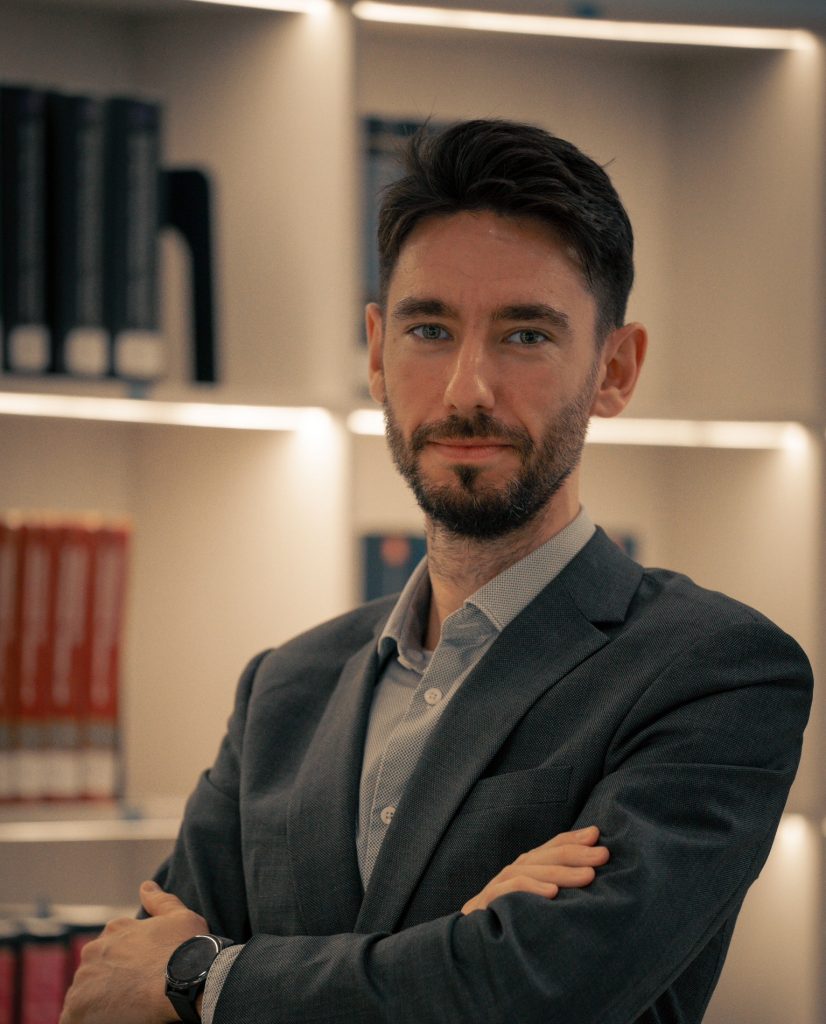 Mr. Milan Jovančević
Legal Advisor, United Nations
Mr. Milan Jovančević
Legal Advisor, United Nations

Mr. Milan Jovančević
Legal Advisor, United Nations Milan Jovančević serves as legal advisor and programme management officer to the United Nations Assistance to the Khmer Rouge Trials in Phnom Penh, Cambodia. Prior to joining the United Nations, Mr. Jovančević served as a prosecutor in Australia. He holds a Juris Doctor from the University of New South Wales, specialisations in international law and a degree in management. He has maintained active cooperation with the ICRC in Phnom Penh and regional delegation in Bangkok through various professional and academic engagements since 2017. -
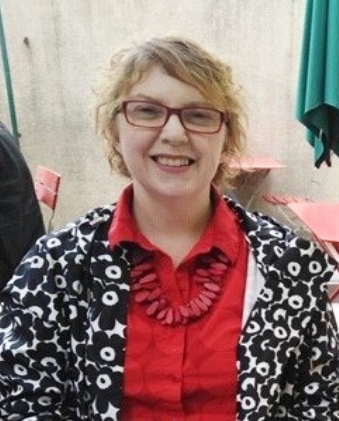 Ms. Kelisiana Thynne
Head of Legal Department, International Committee of the Red Cross
Ms. Kelisiana Thynne
Head of Legal Department, International Committee of the Red Cross

Ms. Kelisiana Thynne
Head of Legal Department, International Committee of the Red CrossKelisiana Thynne is currently Head of the Legal Department in the International Committee of the Red Cross (ICRC)’s delegation in Manila, where she advises on the legal issues associated with the armed conflicts in the Philippines. Previously she was in the ICRC’s Operational Law Unit in Geneva advising and research on the legal and humanitarian issues in the aftermath of conflict. Before that she was in the Advisory Services, working on implementation of IHL into domestic law, covering a range of thematic files such as sexual violence, protection of the natural environment, counterterrorism, weapons and responsible arms transfers. From 2014-2018, she was in Kuala Lumpur as ICRC Regional Legal Adviser, covering South East Asia and Japan. Prior to that, she was with ICRC as Legal Advisor in Kabul, Afghanistan, and as Regional Legal Advisor for the Pacific.
Kelisiana has worked for the Australian government as the Director of Capability and Research Manager at the Australian Civil-Military Centre and as a Senior Legal Officer in the Office of International Law of the Australian Attorney-General’s Department. She has a Master of Laws from the University of Sydney and Bachelor of Laws (Honours) and Bachelor of Arts (Honours) from the Australian National University and is currently completing a Graduate Certificate on the Law of the Sea through the University of Wollongong.
-
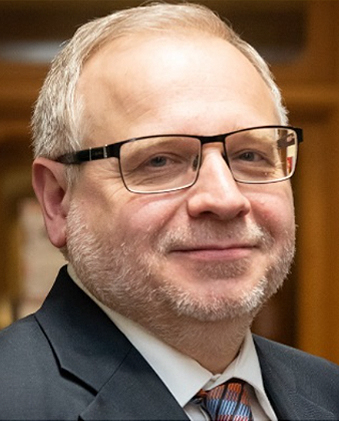 Prof. Alberto Costi
Professor of Law, Te Herenga Waka-Victoria University of Wellington
Prof. Alberto Costi
Professor of Law, Te Herenga Waka-Victoria University of Wellington
Prof. Alberto Costi
Professor of Law, Te Herenga Waka-Victoria University of Wellington Alberto Costi is a Professor of Law at Te Herenga Waka—Victoria University of Wellington. He has published widely in public international law, including use of force, the law of armed conflict, transitional justice and human rights, and in international environmental law, including environmental justice, climate migration, and climate change. He has published over eighty books, book chapters and journal articles, spoken at numerous international conferences, and commented widely in the media and before parliamentary committees in these areas. Recent publications include the editorship of the first ever textbook on international law from a New Zealand perspective (Public International Law: A New Zealand Perspective (LexisNexis, 2020)) as well as the joint editorship of “In the Eye of the Storm” – Reflections from the Second Pacific Climate Change Conference (SPREP, VUW and NZACL, 2020). Alberto serves on the editorial board of ten journals, including Environmental Policy and Governance, the New Zealand Journal of Public and International Law and the Revue Québécoise de Droit International. He is the President of the New Zealand Association for Comparative Law, Co-Director of the New Zealand Centre of International Economic Law and Secretary-General of the International Law Association New Zealand Branch, and sits on the New Zealand International Humanitarian Law Committee. -
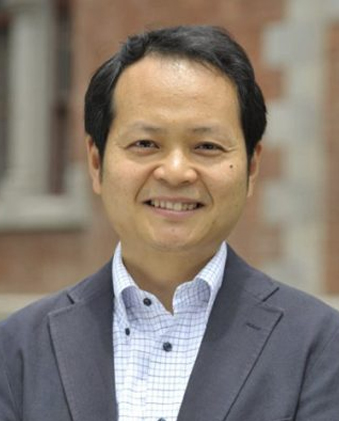 Prof. Kyo Arai
Professor of International Law, Doshisha University (Kyoto)
Prof. Kyo Arai
Professor of International Law, Doshisha University (Kyoto)

Prof. Kyo Arai
Professor of International Law, Doshisha University (Kyoto) Professor of International Law, at the Graduate School and the Faculty of Law, Doshisha University, Kyoto, since 2007. He received LL.M, from Graduate School of Law, Doshisha University in 1995. Areas of his academic interests are: International Humanitarian Law, Law of Naval Warfare, and International Criminal LawHe has contributed to many books and journals including Japanese Yearbook of International Law, and Journal of International Law and Diplomacy (published by the Japanese Society of International Law) and Japanese Yearbook of International Law. His latest publications in English include "Between Consented and Un-Contested Occupation" Israel Law Review Vol.51, No.3 (2018), to which the Israel Law Review Prize 2018 was awarded. He has cooperated with the Regional Delegate of the ICRC for the Southeast Asia and the Tokyo Office for many years. He was a Visiting Scholar in the Lauterpacht Center for International Law, the University of Cambridge, 2002-2003. -
 Dr. Liu Guofu
Professor, Beijing Institute of Technology
Dr. Liu Guofu
Professor, Beijing Institute of Technology
Dr. Liu Guofu
Professor, Beijing Institute of TechnologyHe was awarded a Ph.D. by the University of Technology, Sydney, Australia; completed a German Humboldt Fellowship at Frankfurt University, Germany; and received an LLM from China University of Politics and Law and an LLB from Zhengzhou University, China. His recent research focuses on migration laws and policies. He is the Migration Research and Publishing High-Level Adviser and the member of Migration Research Leaders Syndicate for the International Organization for Migration (IOM), UN Migration.
He is the author of many academic monographs, papers, and research reports including The Right to Leave and Return and Chinese Migration Law (Brill Nijhoff) and Chinese Immigration Law (Ashgate), Chinese Policy on Readmission (Repatriation) of Illegal Migrants (International Organization of Migration) and Chinese Refugee Law (Brill Nijhoff). He hosted over thirty academic research projects regarding immigration law and policy from the Chinese governmental authorities and international organizations including the IOM, UNHCR, ILO, UNACT and EU.
-
 Dr. Papawadee Tanodomdej
Lecturer, Chulalongkorn University
Dr. Papawadee Tanodomdej
Lecturer, Chulalongkorn University
Dr. Papawadee Tanodomdej
Lecturer, Chulalongkorn University Dr. Papawadee Tanodomdej is a lecturer on public international and conflict of laws. She holds an LL.D. with a specialism on cyber operations and the use of force from Kyushu University, Japan. -
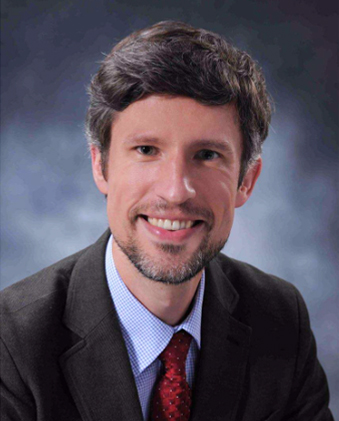 Dr. Matthias Vanhullebusch
Chenxing Associate Professor, Shanghai Jiaotong University
Dr. Matthias Vanhullebusch
Chenxing Associate Professor, Shanghai Jiaotong University

Dr. Matthias Vanhullebusch
Chenxing Associate Professor, Shanghai Jiaotong Universitymatthias.vanhullebusch@gmail.com https://papers.ssrn.com/sol3/cf_dev/AbsByAuth.cfm?per_id=2405677 https://www.researchgate.net/profile/Matthias-Vanhullebusch https://orcid.org/0000-0003-0585-0429Matthias Vanhullebusch (PhD, School of Oriental and African Studies, University of London; LL.M. (Adv.), Leiden) is Chenxing Associate Professor and Executive Director of the Asian Law Center at the KoGuan School of Law of the Shanghai Jiao Tong University since 2012. He has an expertise in international law with a regional focus on the Middle East and Asia. He is the Senior Managing Editor of the Asian Journal of Law and Society (Cambridge University Press), Editor-in-Chief of Brill’s Asian Law Series (Brill/Nijhoff) and the Routledge Studies on Asia in the World (Taylor & Francis), and Associate Editor of the Asian Yearbook of Human Rights and Humanitarian Law (Brill/Nijhoff). He is the Co-Rapporteur of the International Law Association’s Study Group on Asian State Practice of Domestic Implementation of International Law. He is a Visiting Professor on various training programmes organised by the International Committee of the Red Cross across Asia. He has been a Visiting Scholar at the Geneva Academy of International Humanitarian Law and Human Rights (Summer 2018), the Oxford Institute for Ethics and Law of Armed Conflict (Summer 2019) and the Asia-Pacific Centre for Military Law, University of Melbourne (Spring 2020). His latest monographs include: War and Law in the Islamic World (Brill/Nijhoff, 2015) and Global Governance, Conflict and China (Brill/Nijhoff, 2018), The Law of International Humanitarian Relief in Non-International Armed Conflicts (Brill/Nijhoff, 2021). -
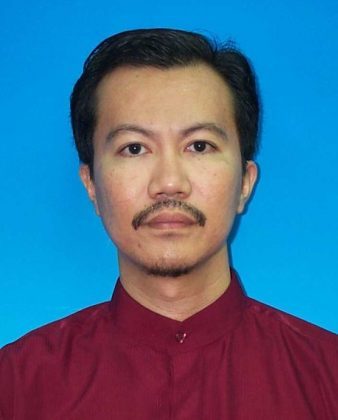 Dr. Mohd Hisham Mohd Kamal
Dr. Mohd Hisham Mohd Kamal
Editorial Team
-
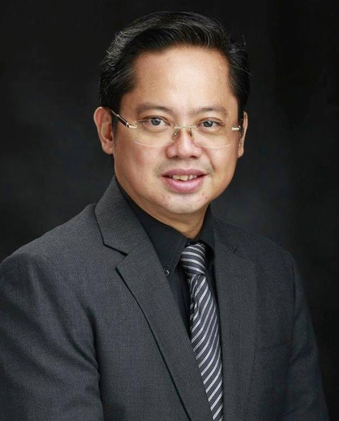 Prof. Rommel J. Casis
Managing Editor
Prof. Rommel J. Casis
Managing Editor

Prof. Rommel J. Casis
Managing EditorProfessor, University of the Philippines
Professor Casis received his LL.M. (2010) from Columbia University, specializing in International Law, Climate Change Law and Environmental Law. He earned the distinction of being a Harlan Fiske Stone Scholar (magna cum laude equivalent).
He has been teaching at UP Law since 2005 and became a full-time faculty member since 2008. He teaches International Humanitarian Law and International Environmental Law in the LLM and Public International Law in the JD programs of UP Law. He is the Director of the Institute of International Legal Studies of the University of the Philippines Law Center. He is an editor of the Philippine Yearbook of International Law, the publication of the Philippine Society of International Law where he also serves as Executive Director. He is the Managing Editor of the Asia Pacific Journal of International Humanitarian Law.
He is also the State Volume Editor for the Asian Yearbook of International Law. Aside from many published journal articles, Prof. Casis has written law treatises on the Law on Torts and Quasi-Delicts, the Law on Damages, Agency Law, Partnership Law and the Law on Contracts. He is also a member of the International Law Department of the Philippine Judicial Academy and Co-Convenor of the International Criminal Law interest group of the Asian Society of International Law. -
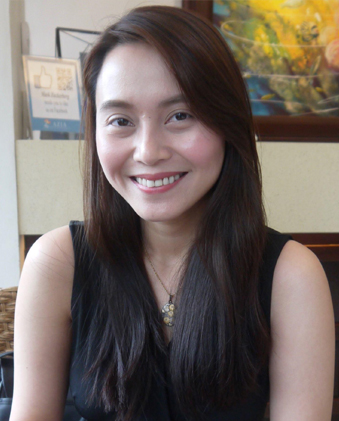 Atty. Joan Paula Deveraturda
Associate Editor
Atty. Joan Paula Deveraturda
Associate Editor

Atty. Joan Paula Deveraturda
Associate Editor Joan Paula Deveraturda currently serves as the Project Director and Assistant Editor for the Asia-Pacific Journal of International Humanitarian Law. She has a Master of Laws in International Security degree from the Australian National University and a Master of Human Rights and Democratisation degree (MHRD European Commission scholarship) from the University of Sydney. She received her Juris Doctor degree (Dean’s Medal for Academic Excellence) from the University of the Philippines College of Law, and her AB in Communications with a minor in Japanese Studies from Ateneo de Manila (Cum Laude). She has previously worked in the Philippine Supreme Court as a Court Attorney and teaches Public International Law in University of the Philippines College of Law, Special Issues in International Law and Torts and Damages in Far Eastern University Institute of Law in the Philippines. -
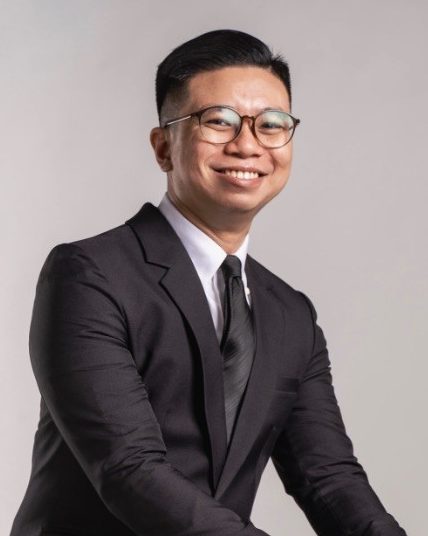 Prof. Michael T. Tiu, Jr.
Assistant Editor
Prof. Michael T. Tiu, Jr.
Assistant Editor
Prof. Michael T. Tiu, Jr.
Assistant EditorProf. Michael T. Tiu, Jr. is an Assistant Professor of the University of the Philippines (UP) College of Law. He is concurrently the Head of the International Criminal Law Program of the UP Institute of International Legal Studies and the Head of the UP Law Center Information and Publication Division.
Prof. Tiu is a legal consultant with the United Nations (UN) Office on Drugs and Crime (ODC), under the UN Joint Programme for the Promotion and Protection of Human Rights in the Philippines (JPHR). He is also consultant of the Supreme Court of the Philippines on gender policy and its committees on the revision of rules, and has also been a Consultant of the Commission on Human Rights on matters involving international human rights standards. He serves as a member of the Philippine Working Group on Business and Human Rights (BHR), having conducted BHR trainings for several of the largest publicly listed companies in the Philippines.
-
 Ms. Aira Lynn Cunanan
Senior Editorial Assistant
Ms. Aira Lynn Cunanan
Senior Editorial Assistant
-
 Ms. Ma. Flordeliza Villar
Junior Research Assistant
Ms. Ma. Flordeliza Villar
Junior Research Assistant
-
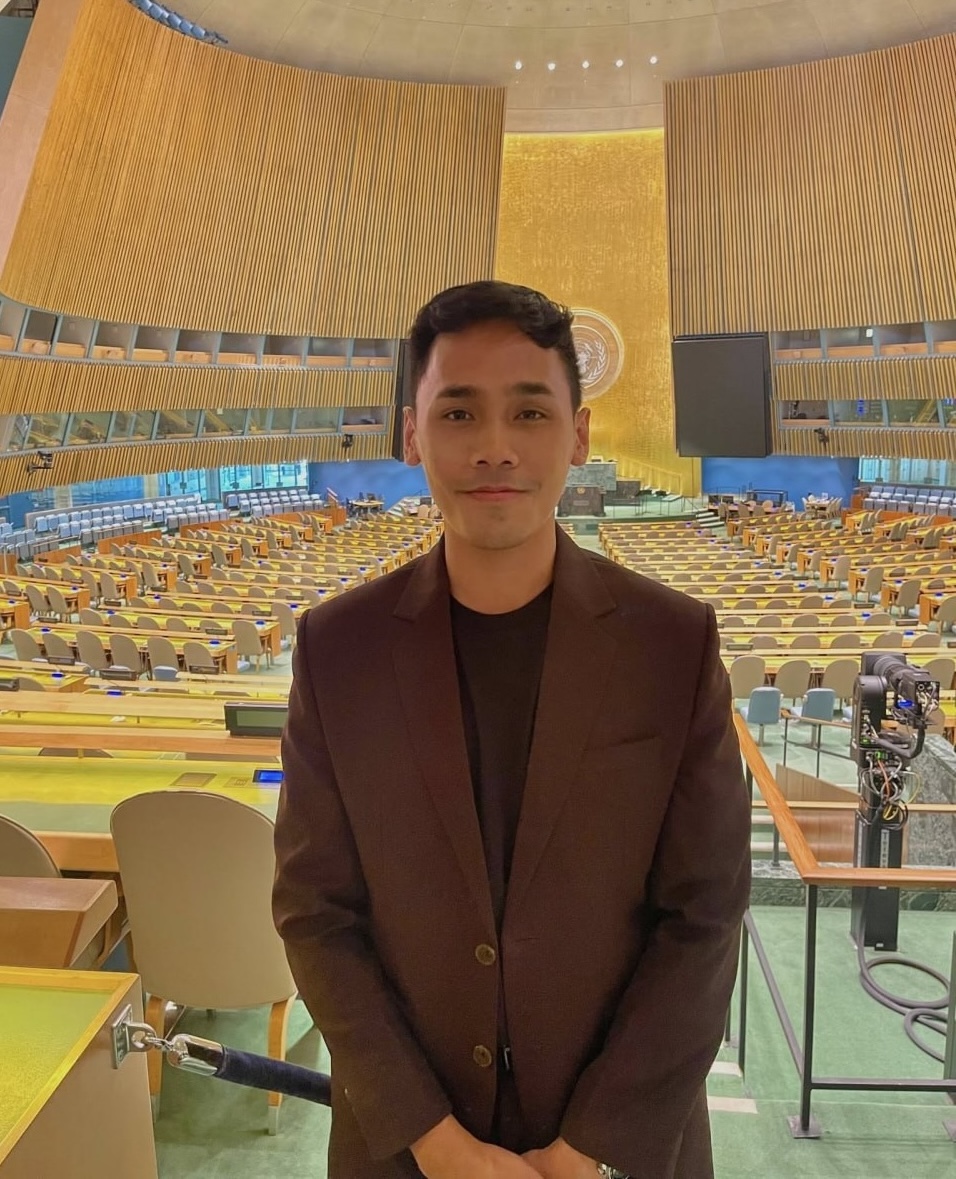 Mr. Mackie Valenzuela
Editorial Assistant
Mr. Mackie Valenzuela
Editorial Assistant

Mr. Mackie Valenzuela
Editorial Assistant Mackie Valenzuela is a graduating student at the University of the Philippines - College of Law with an interest to specialize in international law and human rights. His research areas include immunity of state officials for international crimes, recognition of governments, jurisdictional framework of the International Criminal Court and the International Court of Justice, and the progressive development of crimes against humanity and war crimes under the Rome Statute.
